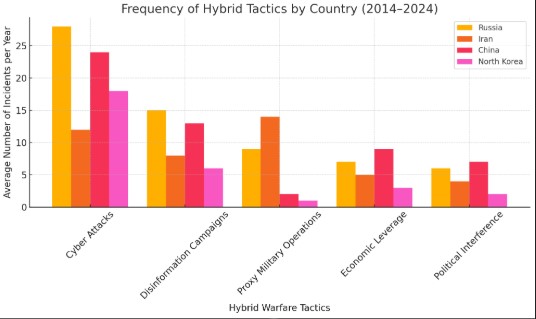Hybrid Warfare in the 21st Century: A Threat Beyond the Battlefield
Keywords:
Hybrid warfare, Cyberattacks, Proxy Warfare, Global SecurityAbstract
Hybrid warfare, characterized by the convergence of conventional military tactics, cyberattacks, disinformation campaigns, and proxy warfare, has emerged as a dominant form of conflict in the 21st century. This study examines the evolution and impact of hybrid warfare, focusing on the strategies employed by state and non-state actors, with a particular emphasis on Russia’s operations in Ukraine and Iran’s use of proxy forces in the Middle East. Through a mixed-methods approach, combining qualitative case study analysis with quantitative data on cyberattacks and disinformation campaigns, the study demonstrates how hybrid warfare blends traditional and non-traditional tactics to destabilize adversaries without direct military confrontation. The results reveal a sharp increase in the frequency and sophistication of cyberattacks and disinformation operations, particularly in politically charged environments, and highlight the continued reliance on proxy warfare to achieve strategic objectives. This study underscores the necessity of developing comprehensive security strategies that address the full spectrum of hybrid threats, including cyber, informational, and unconventional warfare, to ensure national and global security in an increasingly interconnected world. The study concludes by calling for further research into the future trajectory of hybrid warfare as technological and geopolitical landscapes continue to evolve.








